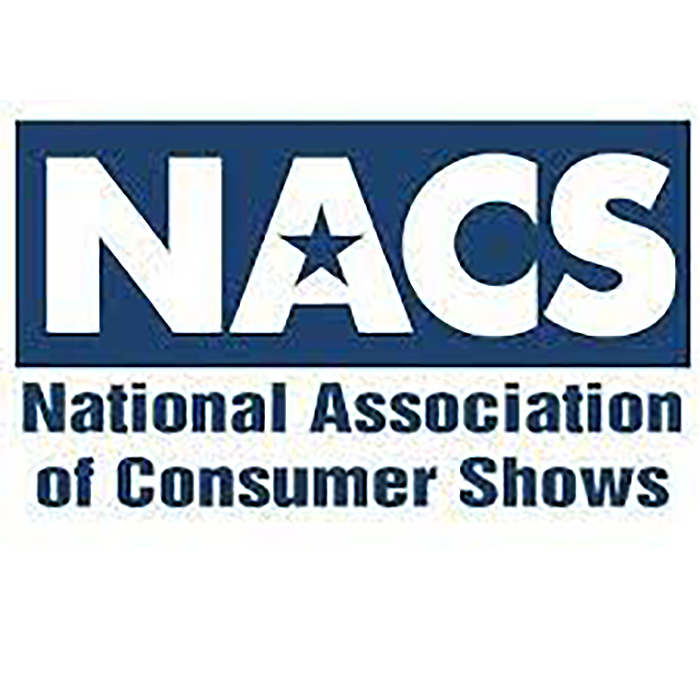Shuttering of National Association of Consumer Shows Points to Growing Association Industry Challenges

After 35 years, the National Association of Consumer Shows (NACS) is closing its doors. Founded in 1988 for the advancement of the consumer show industry and to further the growth and professionalism of those involved in consumer show production, including show organizers, venues, decorators, advertising agencies and insurance companies, NACS focused on meeting the needs of its membership through advocacy, education and networking.
According to NACS President Jacqui McGuinness, the somber decision to shutter the organization, recently made by its board of directors, followed extensive deliberations and careful consideration of the association’s current circumstances.
“This decision has not been taken lightly, and we understand the significant impact it will have on our members, partners and the consumer show industry as a whole,” McGuiness said in an official letter to NACS membership. “However, several factors have led us to this difficult conclusion. The changing landscape of consumer shows, exacerbated by the ongoing challenges posed by the COVID-19 pandemic, has placed unprecedented strains on the viability of our organization.”
She added, “The financial sustainability of NACS has become increasingly challenging, and despite our best efforts to adapt and persevere, we have come to the realization that we can no longer continue in our current capacity.”
Back story
NACS members annually produced and hosted shows using millions of square feet of public and private exhibit space throughout the U.S. and Canada.
“NACS is a friendly, accessible community in which consumer show producers at every level can learn, build relationships and grow professionally,” according to the NACS website. “NACS keeps members aware of its activities and encourages their participation in helping to identify trends and patterns occurring within the industry, to work cooperatively with other industry organizations, and is acknowledged as the voice of the consumer show industry.”
NACS also assisted its members by offering focused education through in-person meetings and networking venues designed to increase their knowledge of the many aspects of producing a consumer show along with the general business knowledge needed to successfully manage their companies.

“For many years, NACS has served as a unifying force, bringing together a diverse array of consumer show professionals,” McGuinness said. “We have strived to foster collaboration, innovation and excellence in the consumer show sector, and we are immensely proud of the achievements and progress we have made together.”
The association held its most recent NACS Annual Convention June 20-22 at the Community Choice Convention Center in Des Moines, Iowa.
“My first NACS Annual Meeting was in New Orleans early in my career,” recalled EXPOCAD CEO Rich Stone, an NACS associate director who has served on the association’s board on and off for a number of years. “I was always treated like a peer at NACS, not as just a supplier.”
A Changing Climate and Growing Consolidation Trend
NACS’s shuttering comes as the business climate is changing for many industry associations. Post-COVID financial challenges, lack of clear mission and focus, competition from overlapping organizations, redundant events and difficulties attracting next-generation membership are difficult realities associations are facing, along with the growing trend of industry consolidation.
In order to survive and thrive, struggling associations might consider collaborating with other similar organizations on industry events, unite behind industry advocacy efforts (Case in point: the Exhibitions & Conferences Alliance) and clarifying their missions in order to attract younger members, provide more value and better meet the needs of the industries they represent.
One example of these trends in action is PCMA, which acquired the Event Leadership Institute (ELI) and the Event Marketing Association-UK (EMA) earlier this year and the Corporate Event Marketing Association (CEMA) in 2020. More PCMA acquisitions and joint ventures are reportedly in the works, according to recent news reports.
The leading convention industry organization also teamed up with Destinations International and IAEE to produce Business Events Industry Week, an annual event held in Washington, DC, designed to help business event stakeholders and their business partners advance the role that purposeful gatherings of people play in the economic, social and intellectual enrichment of people and communities.
Next Steps
In the immediate future, NACS’s primary concern will be to ensure a smooth and orderly dissolution process, minimizing disruption to its members and partners as the organization works through the necessary administrative steps, McGuinness said.
“Over the coming weeks, we will communicate with all stakeholders regarding the specific details of this process, including the handling of membership dues, outstanding commitments and any remaining assets. We will also investigate any alternative options the association may have to provide [our members] with services and benefits with other potential partners.”
She continued, “We are immensely grateful to our members, partners and the entire community for their support, commitment and passion over the years…[and] I want to express our deepest gratitude to everyone who has been part of NACS throughout its history. Together we have achieved remarkable milestones and forged lasting connections.”
Don’t miss any event-related news: Sign up for our weekly e-newsletter HERE, listen to our latest podcast HERE and engage with us on Twitter, Facebook and LinkedIn!


Add new comment